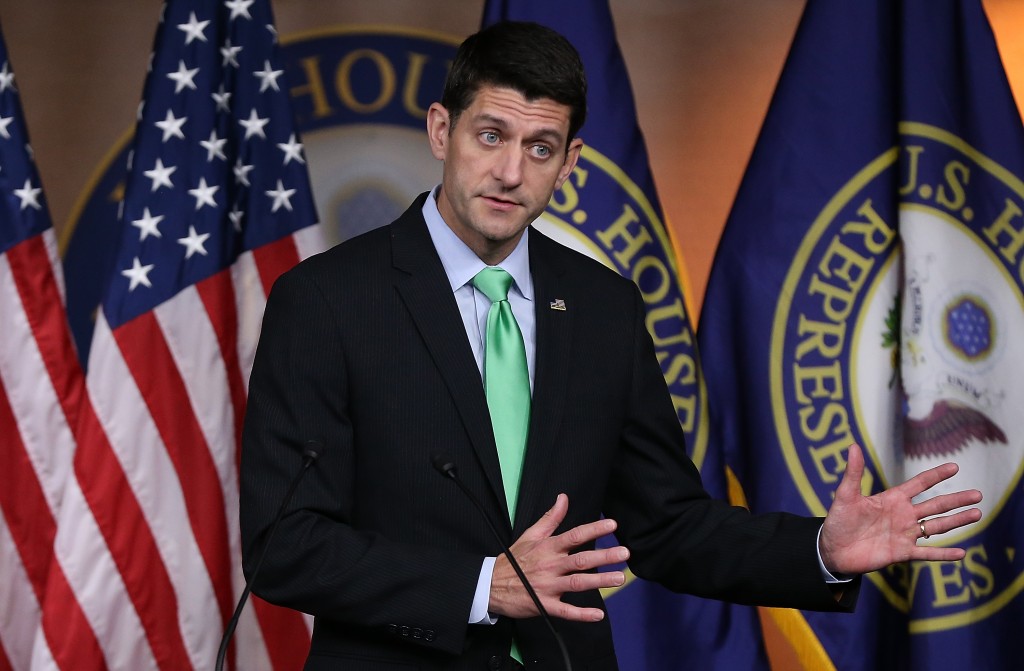
by Michael Mathes
WASHINGTON , United States (AFP) — US Speaker of the House Paul Ryan, the nation’s top Republican, said Thursday he was not ready to support Donald Trump as the party’s presumptive presidential nominee in the November election.
“To be perfectly candid… I’m just not ready to do that at this point,” Ryan told CNN.
“I am not there right now,” Ryan went on. “I hope to though, and I want to. But I think what is required is that we unify this party.”
It was a stunning declaration expected to reverberate throughout the party’s establishment and its rank and file, amid swirling concerns over whether conservatives will be able to rally around Trump in his expected matchup against Democrat Hillary Clinton.
Ryan, who repeated he would not seek or accept the nomination in the event of a contested convention, was the Republican vice presidential nominee in 2012 and is currently second in line to the presidency.
While his role as House Speaker may make him the quintessential symbol of the Washington establishment that Trump supporters have so passionately opposed, his very public doubts about the standardbearer could filter down to millions of voters.
“He’s got some work to do,” Ryan said, noting that “the bulk and the burden” was on Trump to begin the healing process after a brutal primary campaign and the brash billionaire’s long string of insulting remarks to other hopefuls he ultimately defeated, and to lots of other people.
“It’s time to set aside bullying. It’s time to set aside belittlement,” he said.
Ryan has expressed criticism of Trump before, notably about the candidate’s proposal to ban Muslims from entering the United States.
But Thursday’s comments were all the more startling because Trump has now emerged as the party’s standardbearer and Ryan will be co-chairman of the Republican presidential nominating convention in July.
Work together?
Trump, who was to hold a rally in West Virginia later Thursday, shot back within minutes.
“I am not ready to support Speaker Ryan’s agenda,” he said in a statement.
“Perhaps in the future we can work together and come to an agreement about what is best for the American people.”
Ryan acknowledged he had expected the Republican race to carry on into June, and perhaps to a contested convention, with Trump’s chief rival Ted Cruz staying in the race in an effort to block Trump from sealing the deal.
But when Trump won Tuesday’s hotly contested Indiana primary, Cruz and third-place John Kasich dropped out, leaving Trump as the presumptive nominee.
Ryan insisted, however, that despite his misgivings about Trump, no Republicans should support Clinton — as several have threatened to do.
“To be the party and climb the final hill and win, we need a standardbearer that can unify all — all conservatives and the wings of the party — and then go to the country with an appealing agenda,” he said.
Ryan is the latest in a string of party grandees who have declined to back Trump.
Presidents George H.W. Bush and his son George W. Bush have signalled they will not endorse Trump in 2016, while Mitt Romney, the 2012 nominee, is reportedly declining to attend the Republican convention.
Some conservatives, including freshman Senator Ben Sasse of Nebraska, argue that a third candidate should challenge Trump and Clinton.
“Why are we confined to these two terrible options?” Sasse, who insists he will never back Trump, asked in an open letter to US Republicans.
“If both choices stink, we reject them and go bigger.”
Ryan put himself at odds with Senate Republican leader Mitch McConnell, who publicly endorsed Trump’s candidacy “to prevent what would be a third term of Barack Obama.”
“As the presumptive nominee, (Trump) now has the opportunity and the obligation to unite our party around our goals,” McConnell said in a statement Wednesday.
Trump, 69, has said Republicans would unite to support him.
“Now we’ll unify the party,” Trump, 69, told Fox News on Wednesday. “We’re going to get people together.”
But with sky-high unfavorability ratings, and concern within his own party about his temperament, the real estate mogul swiftly sought to assuage concerns about how a President Trump would govern.
“Things will be fine,” he told The New York Times. “I’m not running for president to make things unstable for the country.”
As Trump seized the GOP mantle, a CNN poll highlighted the formidable challenge facing him.
It found Clinton, hoping at 68 to become America’s first female commander-in-chief, leading the tycoon 54 percent to 41 percent — her largest lead since July.
Nevertheless, the former secretary of state suffered a shock loss in Indiana to Bernie Sanders, who has pledged to remain in the race despite the delegate math overwhelmingly favoring Clinton.
Clinton has already pivoted to Trump and their general election matchup.
“He is a loose cannon, and loose cannons tend to misfire,” she said.
© 1994-2016 Agence France-Presse








